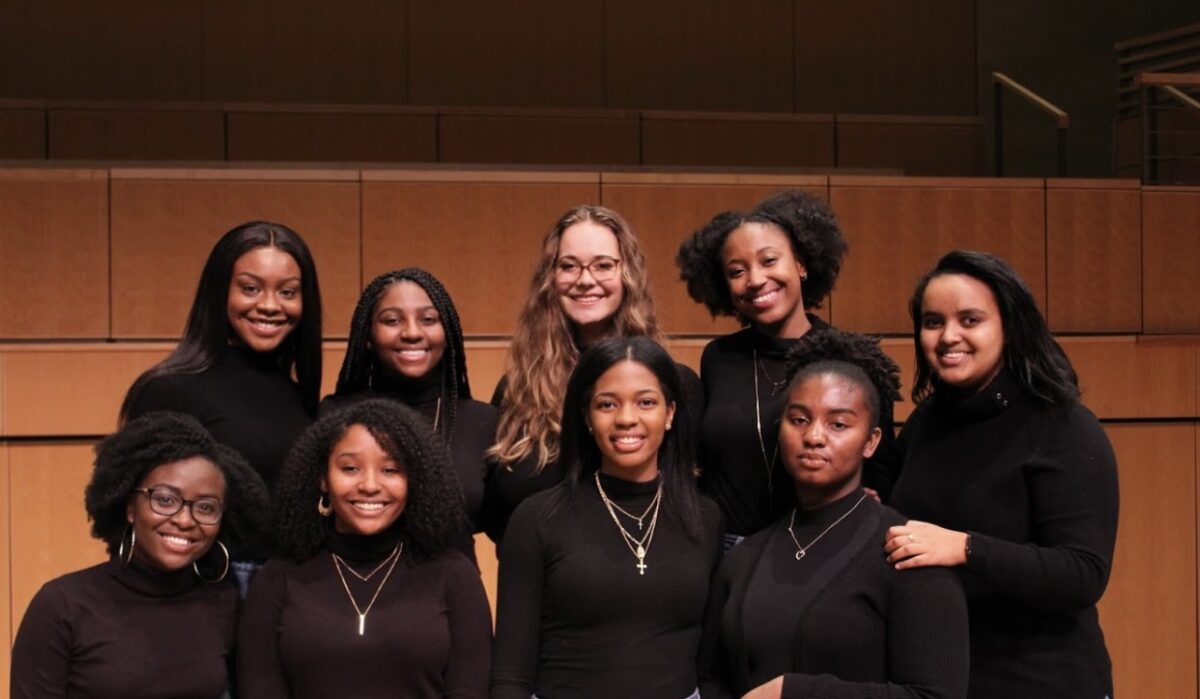Ninth Circuit Bucks Extremely Recent Trend, Says Chalking Tires Not A Fourth Amendment Violation
from the court docket:-no-intrusion-here,-residents-of-our-jurisdiction dept
I have to admit I’m amused by current courtroom exercise dealing with chalking tires. A little something that has been carried out for many years with zero protest — marking tires with chalk to determine how lengthy a car has been parked — is now fodder for federal appellate conclusions.
It’s a very low tech option to a small tech problem. Cop surveillance tech and techniques may have innovative fast about the decades, but someone however has to make certain parking guidelines are enforced. Parking tickets generate revenue but this earnings seems to be unworthy of substantially notice. It is un-pretty legislation enforcement, anything that reliably puts dollars in city’s coffers but will in no way deliver headlines or outcome in neighborhood Television set protection.
Intrusion on people’s individual property can even now occur even when that assets is temporarily situated on community streets. Which is the summary that’s been reached by a person federal court and (twice!) by the Sixth Circuit Court of Appeals. The seemingly innocuous chalk mark on a parked car’s tire might be a fleeting artifact of a felony investigation — a person that ceases to be important once the motor vehicle is in movement and will disappear (many thanks to normal driving, rain, or vehicle washes) with zero direct interaction from the car operator — but it is investigatory all the very same.
The tire mark is the original exertion in an investigation into parking violations. Since it is part of an investigation into a crime that may or might not be committed, it has Fourth Amendment implications. But not almost everywhere.
As pointed out above, the Sixth Circuit Appeals Courtroom has declared this form of parking enforcement unconstitutional. So did a lower stage court in the Ninth Circuit, which went a various way than the Sixth Circuit. It cited the unconstitutional intrusion observed in the Supreme Court’s Jones selection — a person that identified the warrantless placement of a GPS product on a vehicle parked on personal house unconstitutional — and claimed the intrusion was not justified by the city’s desire to implement parking ordinances. This court reported it was not an investigational intrusion, but it was nevertheless an intrusion, one that could not be excused by the city’s “public safety” promises considering that residents’ basic safety plainly wasn’t afflicted by illegally parked vehicles.
Sad to say for the plaintiffs in the California federal courtroom lawsuit, the Ninth Circuit Appeals Court docket isn’t inclined to feel tire chalking is a Fourth Amendment violation. The ruling [PDF] handed down late past month reverses the lessen court’s final decision, declaring that tire chalking (at least in this circuit) is nonetheless perfectly constitutional. (h/t Small Circuit)
The Appeals Court says chalking tires is a “no hurt, no foul” form of legislation enforcement, one particular that has at the very least a person warrant exception on its facet.
The panel held that even assuming the momentary dusting of chalk on a tire constitutes a Fourth Amendment “search,” it falls within the administrative search exception to the warrant requirement. Complementing a broader software of visitors management, tire chalking is sensible in its scope and method of execution. It is not utilised for common criminal offense manage reasons. And its intrusion on particular liberty is de minimis at most.
“De minimis” is unhelpful. No 1 is aware the contours right up until a federal court troubles a ruling. The Supreme Court’s Rodriguez conclusion designed it clear it was not the size of the violation, but somewhat the violation alone. In the meantime, plenty of other Fourth Amendment choices suggests that cops can violate legal rights as very long as they’re brief and not far too abusive about it. So, this last phrase isn’t all that instructive.
However, it seems unlikely the US Supreme Court docket would be interested in adjudicating the intricacies of parking enforcement at neighborhood degrees, so there will be no speedy resolution of this circuit split (which, admittedly, only contains two of twelve circuits at this issue). The good news is, this selection is form of slim: for the minute, it just says the city of San Diego can continue on to chalk tires to engage in parking enforcement. It is not a blanket blessing of all other enforcement attempts in the circuit, even if it does suggest it is a blanket blessing for tire chalking.
Weirdly, the Ninth Circuit acknowledges that the city’s failure to deliver enough parking is detrimental to general public protection, but chooses to area this stress on motorists fairly than the metropolis.
Inadequate parking impacts community security. Cruising, double parking, and unlawful parking all lead to enhanced targeted traffic congestion that makes it far more hard for community buses and emergency motor vehicles to navigate metropolis streets. Illegally parked autos might block obtain to fireplace hydrants or bus lanes. Increased traffic quantity poses greater basic safety risks to pedestrians, bicyclists, and drivers, and motorists exploring for places are also distracted and more very likely to result in collisions. Stop-and-go website traffic and idling cars linked with congestion and parking shortages also consequence in elevated localized automobile emissions.
The Ninth Circuit claims the victims of inadequate metropolis setting up and targeted visitors control are to blame. And any attempts they use to lessen the influence of “insufficient parking” must be rewarded with citations. Issuing citations allows lessen a challenge the city apparently can’t remedy and the approaches most usually used to punish men and women who just cannot discover parking in a mismanaged city are A-Ok in this court’s e book.
The courtroom goes on to notice the city could use many other techniques to achieve this conclusion. But it also goes on to grant credence to the city’s declarations that other options — ranging from visitors enforcement notations to stationary cameras in higher traffic spots to automatic license plate viewers — are also highly-priced or way too challenging to employ, at minimum as compared to meter maids and a box of chalk.
But that is not how this is intended to do the job. The authorities is meant to be expected to make the most of the the very least intrusive approach even if it’s not the most basic or the least expensive. This selection says the most basic process — no subject its constitutional implications — is realistic less than the Fourth Amendment.
To be reasonable, the court does take time to examine plenty of Fourth Amendment implications, like the simple fact that chalking tires in hopes of getting upcoming criminals is not entirely unlike dragnet surveillance, which considers all captured data practical until eventually it’s decided that it is not. But in the finish, San Diego prevails. The governing administration can continue to hire dragnets, so extended as the dragnet is minimally intrusive. If the govt can bypass legal rights to get other, additional essential finishes, why not listed here, when it’s only a absence of enough parking at stake?
All of this confirms that the plaintiffs’ posture can’t be readily located in a coherent principle of Fourth Amendment jurisprudence. Without having a warrant, folks can be lawfully stopped at highway checkpoints for detecting drunk driving, driving with no a license, and illegal hunting govt workers and learners can be lawfully searched, which include by drug screening closely controlled enterprises can be topic to periodic inspection and plane travellers can have their luggage opened and their bodies patted down. Folks can also be detained based only on acceptable suspicion of wrongdoing (“not a particularly significant threshold to reach”), United States v. Valdes-Vega, 738 F.3d 1074, 1078 (9th Cir. 2013) (en banc), and can be arrested centered only on probable induce (“not a higher bar”). Kaley v. United States, 571 U.S. 320, 338 (2014).
Inside of this system of recognized law, it would be passing strange if tire chalking, of all issues, have been somehow a Fourth Amendment crimson line that cannot be crossed. That is not a principle we can endorse. And that is specially so when the upshot of plaintiffs’ lawsuit is that San Diego should really as an alternative use other techniques of enforcement—such as photographing vehicles or employing license plate reader engineering and GPS data—that would ironically invite increased intrusions into own privateness.
The courtroom appears to be to believe that that forcing the governing administration to interact in more surveillance to regulate parking would be a net loss for citizens. But it does not look to consider the different: that parking enforcement isn’t the kind of issue that really should even commence to require discussions of blanket surveillance or expansions of government intrusions. It is about parking. And when it is limited and worthwhile, most parking problems crop up from troubles governments produced with lousy zoning choices or enlargement programs that only noticed what was achievable, fairly than what was actually possible. Decisions like this, while seemingly rational given the nominal intrusion, serve to reward governments for doing a terrible job governing, whilst shrugging off constitutional problems that may perhaps not seem instantly noticeable if 1 limitations their examining of these conclusions to chalk on tires.
Filed Below: 4th amendment, 9th circuit, chalking, cops, parking, parking enforcement, parking tickets






